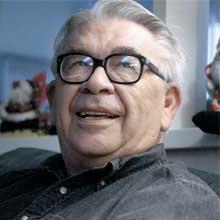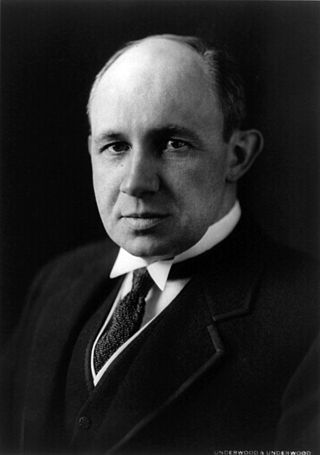Related Research Articles

The Indian Reorganization Act (IRA) of June 18, 1934, or the Wheeler–Howard Act, was U.S. federal legislation that dealt with the status of American Indians in the United States. It was the centerpiece of what has been often called the "Indian New Deal".

Stanley Forman Reed was an American lawyer and jurist who served as an Associate Justice of the U.S. Supreme Court from 1938 to 1957. He also served as U.S. Solicitor General from 1935 to 1938.

Felix Frankfurter was an Austrian-born American jurist who served as an Associate Justice of the Supreme Court of the United States from 1939 until 1962, during which he was an advocate of judicial restraint.
Worcester v. Georgia, 31 U.S. 515 (1832), was a landmark case in which the United States Supreme Court vacated the conviction of Samuel Worcester and held that the Georgia criminal statute that prohibited non-Native Americans from being present on Native American lands without a license from the state was unconstitutional. The opinion is most famous for its dicta, which laid out the relationship between tribes, state, and federal governments. It is considered to have built the foundations of the doctrine of tribal sovereignty in the United States.

Franklin Delano Roosevelt Jr. was an American lawyer, politician, and businessman. He served as a United States congressman from New York from 1949 to 1955 and in 1963 was appointed United States Under Secretary of Commerce by President John F. Kennedy. He was appointed as the first chairman of the Equal Employment Opportunity Commission from 1965 to 1966 by President Lyndon B. Johnson. Roosevelt also ran for governor of New York twice. He was a son of President Franklin D. Roosevelt and First Lady Eleanor Roosevelt, and served as an officer in the United States Navy during World War II.

Indian country is any of the many self-governing Native American/American Indian communities throughout the United States. As a legal category, it includes "all land within the limits of any Indian reservation", "all dependent Indian communities within the borders of the United States", and "all Indian allotments, the Indian titles to which have not been extinguished."

Harold LeClair Ickes was an American administrator, politician and lawyer. He served as United States Secretary of the Interior for nearly 13 years from 1933 to 1946, the longest tenure of anyone to hold the office, and the second longest-serving Cabinet member in U.S. history after James Wilson. Ickes and Labor Secretary Frances Perkins were the only original members of the Roosevelt cabinet who remained in office for his entire presidency.

Vine Victor Deloria Jr. was an author, theologian, historian, and activist for Native American rights. He was widely known for his book Custer Died for Your Sins: An Indian Manifesto (1969), which helped attract national attention to Native American issues in the same year as the Alcatraz-Red Power Movement. From 1964 to 1967, he served as executive director of the National Congress of American Indians, increasing its membership of tribes from 19 to 156. Beginning in 1977, he was a board member of the National Museum of the American Indian, which now has buildings in both New York City and in Washington, DC, on the Mall.

Max Lowenthal (1888–1971) was a Washington, DC, political figure in all three branches of the federal government in the 1930s and 1940s, during which time he was closely associated with the rising career of Harry S. Truman; he served under Oscar R. Ewing on an "unofficial policy group" within the Truman administration (1947–1952).

Franklin D. Roosevelt's relationship with Civil Rights was a complicated one. While he was popular among African Americans, Catholics and Jews, he has in retrospect received heavy criticism for the ethnic cleansing of Mexican Americans in the 1930s known as the Mexican Repatriation and his internment of Japanese Americans during the Second World War. From its creation under the National Housing Act of 1934 signed into law by Roosevelt, official Federal Housing Administration (FHA) property appraisal underwriting standards to qualify for mortgage insurance had a whites-only requirement excluding all racially mixed neighborhoods or white neighborhoods in proximity to black neighborhoods, and the FHA used its official mortgage insurance underwriting policy explicitly to prevent school desegregation.

Thomas Gardiner Corcoran was an Irish-American legal scholar. He was one of several advisors in President Franklin D. Roosevelt's brain trust during the New Deal, and later, a close friend and advisor to President Lyndon B. Johnson.
Ernst Freund was a noted American legal scholar. He received a Dr. Jur. from the University of Heidelberg (1884) and a Ph.D. in political science from Columbia University (1897). He was professor of political science at the University of Chicago (1894–1902) and then professor of law at Chicago (1903–1932), serving as the John P. Wilson Professor of Law (1929–1932). Freund was principally responsible for the development of administrative law in the United States during the early twentieth century. He was one of the organizers of the Immigrants' Protective League (1908). The University of Chicago Law School has established the Ernst Freund Distinguished Service Professorship of Law and Ethics in his honor, a seat currently held by philosopher Martha Nussbaum. U.S. Supreme Court justice Felix Frankfurter described Freund as "one of the most distinguished of all legal scholars in the whole history of the legal professoriate".

Donald Randall Richberg was an American attorney, civil servant, and author who was one of President Franklin D. Roosevelt's key aides and who played a critical role in the New Deal. He co-wrote the National Industrial Recovery Act, was general counsel and executive director of the National Recovery Administration. He also co-authored the Railway Labor Act, the Norris-LaGuardia Act, and the Taft-Hartley Act.
Alan Barth was a 20th-century American journalist and author, specializing in civil liberties, best known for his 30-year stint as an editorial writer at The Washington Post as well as his books, particularly The Loyalty of Free Men (1951).
Ex parte Crow Dog, 109 U.S. 556 (1883), is a landmark decision of the Supreme Court of the United States that followed the death of one member of a Native American tribe at the hands of another on reservation land. Crow Dog was a member of the Brulé band of the Lakota Sioux. On August 5, 1881 he shot and killed Spotted Tail, a Lakota chief; there are different accounts of the background to the killing. The tribal council dealt with the incident according to Sioux tradition, and Crow Dog paid restitution to the dead man's family. However, the U.S. authorities then prosecuted Crow Dog for murder in a federal court. He was found guilty and sentenced to hang.
Hocutt v. Wilson, N.C. Super. Ct. (1933) (unreported), was the first attempt to desegregate higher education in the United States. It was initiated by two African American lawyers from Durham, North Carolina, Conrad O. Pearson and Cecil McCoy, with the support of the National Association for the Advancement of Colored People (NAACP). The case was ultimately dismissed for lack of standing, but it served as a test case for challenging the "separate but equal" doctrine in education and was a precursor to Brown v. Board of Education, 347 U.S. 483 (1954).
Alice Mae Lee Jemison was a Seneca political activist and journalist. She was a major critic of the Bureau of Indian Affairs (BIA) and the New Deal policies of its commissioner John Collier. She lobbied in support of California, Cherokee, and Sioux peoples during her career, supported by the Seneca Tribal Council. The Franklin D. Roosevelt administration condemned her work, and critics described her harshly in press conferences and before Congressional committees. For a time, she was put under FBI surveillance.
Nathan Greene, also known as "Nuddy" Greene, was an American lawyer and legal scholar. He cofounded the International Juridical Association and cowrote The Labor Injunction with his professor and future Supreme Court Justice Felix Frankfurter. The book criticized the U.S. Supreme Court for creating "government by injunction".
David E. Wilkins, a citizen of the Lumbee Nation, is a political scientist specializing in federal Indian policy and law. He is the E. Claiborne Robins Distinguished Professor in Leadership Studies in the University of Richmond’s Jepson School of Leadership Studies and professor emeritus of the University of Minnesota. He studies Indigenous politics, governance, and legal systems, with a particular focus on Native American sovereignty, self-determination, and diplomacy. Wilkins was a student and friend of Vine Deloria Jr., coauthoring two books with Deloria and producing three books about his intellectual impact.
Clifford M. Lytle was a political scientist, scholar of Native American studies, and legal scholar. He was a distinguished university professor in the department of political science at the University of Arizona. He frequently collaborated with fellow University of Arizona political science professor Vine Deloria Jr.
References
- ↑ Strum, Philippa (2010). "Nathan Ross Margold". American National Biography. Oxford University Press / American National Biography.
- 1 2 Williams, Juan (January 18, 2004). "THE COURTS; Poetic Justice". The New York Times. Retrieved January 1, 2018.
- 1 2 3 4 5 6 7 8 9 10 11 12 13 14 15 16 17 18 William D. Pederson (2009). The FDR Years. Facts On File, Inc. p. 172.
- 1 2 Rice, Condoleezza (2017). Democracy: Stories from the Long Road to Freedom . New York: Grand Central Publishing. p. 59. ISBN 9781455540181.
- ↑ Smith, Jason Scott (2006). Building New Deal Liberalism: The Political Economy of Public Works, 1933-1956. Cambridge, U.K.: Cambridge University Press. p. 61. ISBN 9780521139939. OCLC 761547167.
- 1 2 3 "Judge Margold Dies" . The Fresno Bee. Fresno, California. December 16, 1947. p. 14. Retrieved January 1, 2018– via Newspapers.com.
- 1 2 3 "Other Deaths" . The News Journal. Wilmington, Delaware. December 17, 1947. p. 33. Retrieved January 1, 2018– via Newspapers.com.
- 1 2 3 William D. Pederson (2009). The FDR Years. Facts On File, Inc. p. 173.
- ↑ Vine Deloria and Clifford M. Lytle (1984). The Nations within: The Past and Future of American Indian Sovereignty. Pantheon Books. p. 160.
- 1 2 "Indians Entitled To All Rights of U.S. Citizenship" . The Independent Record. Helena, Montana. August 10, 1940. p. 5. Retrieved January 1, 2018– via Newspapers.com.
- ↑ "War Reporter Bares Slaying of Americans. Communists Rule Loyalist Roost, Inquiry Told" . Democrat and Chronicle. Rochester, New York. November 23, 1938. p. 3. Retrieved January 1, 2018– via Newspapers.com.
- ↑ "Jurist Dies" . The Los Angeles Times. p. 12. Retrieved January 1, 2018– via Newspapers.com.